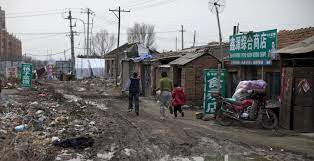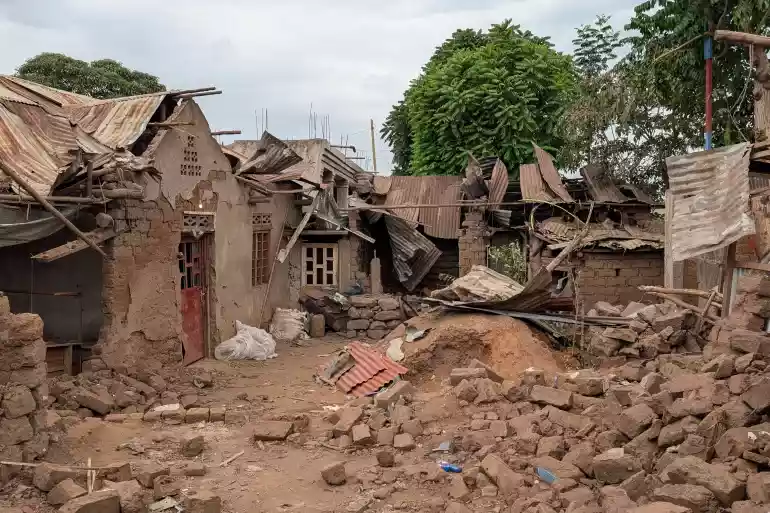
In an unprecedented display of candor, Premier Li Qiang’s inaugural government work report delivered a scathing indictment of the myriad economic woes plaguing China at the recently concluded National People’s Congress in Beijing. The wide-ranging report pulled no punches in exposing the cascading domestic fragilities and external hostilities that threaten to derail the world’s second-largest economy. Abandoning the ubiquitous rhetoric of economic invincibility, Li’s frank appraisal shattered the veneer of robustness, acknowledging the gravity of long-festering structural imbalances exacerbated by an increasingly hostile global landscape. From crippling debt burdens on local governments and rampant industrial overcapacity to anemic consumption and demographic decline, the Premier’s report painted a grim portrait of the formidable headwinds impeding China’s economic ascendancy.
At the core of these mounting challenges lies a glaring principal contradiction identified by President Xi Jinping himself – the growing rift between China’s lopsided development trajectory and its citizens’ burgeoning aspirations for an elevated quality of life. Li’s tacit admission that existing policies have fallen woefully short, coupled with urgent calls for overhauled policy instruments, underscores Beijing’s belated recognition of the imperative for wholesale reforms to harmonize economic progress with societal advancement. For too long, the Communist Party’s doctrinaire adherence to ossified economic dogma has perpetuated this dissonance, fueling public disillusionment and discontent.
Perhaps most alarming is China’s looming employment crisis, with a staggering 11.7 million students graduating into a labor market beset by structural joblessness. This tidal wave of educated yet underemployed youth not only squanders human capital vital to catalyzing innovation and productivity gains, but also presages a demographic timebomb of social instability. Coupled with the demographic crisis of plunging birth rates – which Li attributed to the soaring costs of child-rearing – China’s economic engine faces an impending dearth of the human capital required to sustain robust growth.
In a stark departure from the age-old practice of deploying indiscriminate stimulus splurges to artificially buoy short-term growth, Li pledged fiscal and monetary restraint to avert the moral hazard, overcapacity, and systemic imbalances such policies have wrought. Yet, this new-found prudence belies the entrenched propensity for profligate spending and prestige vanity projects that a decade of much-touted anti-corruption campaigns has manifestly failed to eradicate. The pervasive culture of graft, patronage, and rent-seeking behavior remains deeply entrenched within the Party’s ranks, undermining both economic dynamism and public trust.
The much-touted panacea of “high-quality development” – a buzzword parroted ad nauseam by Party apparatchiks – rings increasingly hollow. With regulatory hurdles, policy incoherence, and waning private sector confidence undermining its lofty promises, this ideological shibboleth has devolved into a mere smokescreen to obfuscate the lack of substantive reform. The imperative for enacting a new law to reassure private enterprises lays bare the overtly challenging environment they have endured under Xi’s tightening authoritarian grip.
While Li was compelled to acknowledge the litany of glaring domestic pitfalls, the report doubled down on Beijing’s penchant for deflecting culpability by assigning blame to nefarious external forces. From protectionist backlashes to intensifying geopolitical frictions, the Premier’s narrative parroted the Party’s well-worn refrain of foreign perfidy insidiously conspiring to stymie China’s resurgence.
Yet, this self-portrayal as an aggrieved victim willfully ignores Beijing’s own mercantilist policies, zero-sum power projections across the Indo-Pacific, and economic opacity that have stoked global apprehensions and catalyzed a protectionist backlash. The cognitive dissonance is equally stark in Li’s contradictory juxtaposition of commitments to fostering a “market-oriented, law-based” economy with avowals to entrench “distinctive Chinese features” – a thinly-veiled euphemism for perpetuating the Communist Party’s iron-fisted stranglehold over all economic levers.
Beijing’s grander global aspirations, from spearheading reforms of the World Trade Organization to supplanting the Bretton Woods system, betray an audacious quest to rewrite the rules and norms of the very liberal economic order that catalyzed China’s meteoric rise in the first place. Its inward-looking pursuit of self-reliance across strategic domains – from grain reserves to data security and semiconductor production – undercuts its hollow protestations of steadfast commitment to globalization and economic interdependence.
- The brains behind Matavire’s immortalisation
- Red Cross work remembered
- All set for inaugural job fair
- Community trailblazers: Dr Guramatunhu: A hard-driving achiever yearning for better Zim
Keep Reading
Even China’s burgeoning primacy in green technologies and renewable energy is being cynically weaponized as a vehicle for exporting its authoritarian standards, norms and influence across the realm of global climate governance – a deeply unsettling prospect given Beijing’s abysmal track record of transparency and accountability. Li’s call to promote the “international mutual recognition of green electricity” is a brazen gambit to enshrine Chinese technological supremacy under the guise of environmental stewardship.
Premier Li’s work report, for all its uncharacteristic candor in delineating economic challenges, represents a damning self-indictment of the Chinese Communist Party’s catastrophic economic stewardship over the preceding decade. By laying bare the structural faultlines, demographic pressures, and socioeconomic imbalances largely of the Party’s own making, the report exposes the yawning chasm between rhetoric and reality plaguing Beijing’s policymaking apparatus.
As the world’s second-largest economy hurtles toward an inflection point, beset by myriad internal contradictions and exogenous shocks, Beijing’s obstinate determination to maintain its authoritarian курс – often at the expense of established global norms and liberal institutional frameworks – portends gathering economic and geopolitical headwinds whose destabilizing reverberations will be felt well beyond China’s borders. The Communist Party’s stubborn refusal to embrace substantive reforms aligning its economic model with universally-accepted liberal precepts has become an existential vulnerability – one that jeopardizes not just China’s ascendancy, but the collective prosperity and security of the Indo-Pacific writ large.











